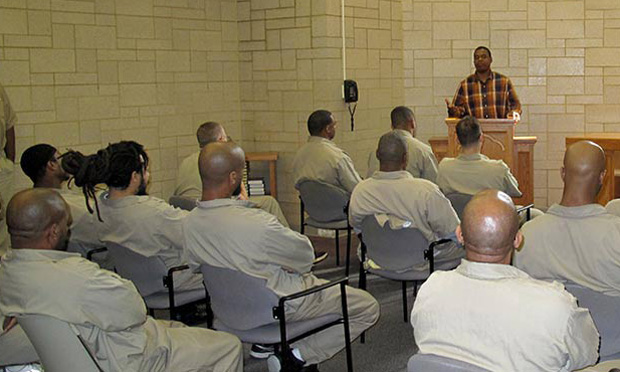A new study suggests high school graduates are less likely to be sent to prison and receive slightly shorter prison sentences than similar criminal offenders who did not finish high school.
The issue: As U.S. policymakers and scholars debate the best ways to reform the nation’s criminal justice system, one area that has received a lot of attention is prison sentencing. In recent decades, researchers have tried to understand the factors that — aside from the facts of a criminal case — affect whether an individual will be sent to prison and the length of his or her sentence.
A number of studies suggest race and gender may play a role. For example, a 2015 study published in Crime & Delinquency indicates Asian offenders are treated more leniently than white, black and Hispanic offenders. The federal government has acknowledged racial disparities in prison sentencing. A 2015 working paper for the U.S. Bureau of Justice Statistics found that “black males receive harsher sentences than white males after accounting for the facts surrounding the case, and we also find that the sentencing disparity has grown …”
A number of national non-profit organizations such as The Sentencing Project and Families Against Mandatory Minimums have lobbied for changes. The American Bar Association supports sentencing reform to address what it calls “over-incarceration” in the United States.
An academic study worth reading: “Sentencing Outcomes in U.S. District Courts: Can Offenders’ Educational Attainment Guard Against Prevalent Criminal Stereotypes?,” published in Crime & Delinquency, 2017.
Study summary: Travis W. Franklin, an associate professor of criminal justice at Sam Houston State University in Texas, looks at whether a person’s education level has any impact on whether he or she is sentenced to prison and the length of the sentence. Franklin analyzed data from the U.S. Sentencing Commission for fiscal years 2006 to 2008. His sample includes 115,674 individuals who were charged with federal crimes, one-third of whom had not completed high school. Fifty-nine percent of offenders in the sample had high school diplomas and 7 percent were college graduates.
Key takeaways:
- High school graduates are 10 percent less likely to be sent to prison than similarly situated offenders who did not finish high school. Offenders with college degrees do not have a statistically significant advantage or disadvantage.
- The sentences of high school graduates were approximately 1.4 percent shorter than the sentences of individuals who had not completed high school. College graduates were not treated differently than offenders who did not graduate high school.
Other resources:
- A 2011 working paper from the U.S. Census Bureau shows that prisoners generally have lower education levels than the general population.
- The U.S. Bureau of Justice Statistics offers a variety of reports related to prisoners in state and federal correctional facilities.
Related research:
- A 2015 study published in the Journal of Criminal Justice, “From Initial Appearance to Sentencing: Do Female Defendants Experience Disparate Treatment?,” found that women are less likely than men to be detained before trial and are 58 percent less likely to be sentenced to prison.
- A 2012 study from the University of Pennsylvania, University of Chicago and Harvard University, “Do Judges Vary in Their Treatment of Race?,” found that the average incarceration rate for black defendants is much higher than for white defendants. The study, however, found little evidence of a link between race and prison sentence length.
- A 2004 study in the American Economic Review, “The Effect of Education on Crime: Evidence from Prison Inmates, Arrests, and Self-Reports,” finds that graduating high school reduces a young man’s chances of committing certain types of crime.


Expert Commentary